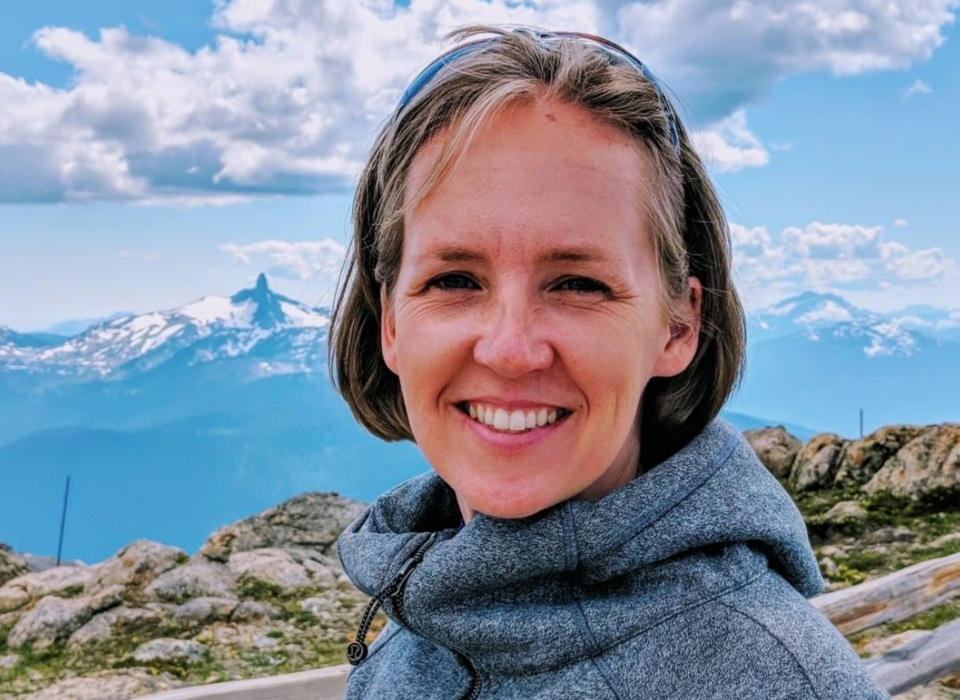Whistler Councillor Jen Ford will return as Squamish-Lillooet Regional District (SLRD) chair for another year.
Ford’s nine SLRD Board of Directors colleagues re-elected her to the position at a meeting on Wednesday, Nov. 24, one year after she was first voted into the role. Electoral Area B Director, Vivian Birch-Jones, is also returning to the position of vice-chair.
Pique caught up to chat with Ford shortly after her re-election about the current challenges facing the SLRD and at its priorities for the year ahead.
(This conversation has been lightly edited for length and clarity.)
Pique: Congratulations on being re-elected as chair!
Jen Ford: Yeah, thank you. It’s a fun and rewarding job and I’m looking forward to working the last part of this term with the board.
P: Obviously it’s been a challenging couple of years for everyone, with COVID-19. Looking back on the last year as chair, are there any particular accomplishments the board made that you’re most proud of?
JF: I think we’ve worked really well together through some very challenging times—72 days of emergency operation center activation, which is a lot. Starting, as you say, with COVID, in 2020 through 2021, and then this past summer, it started with the flood … which turned into wildfire, and smoke … And now again, here we are, into 13 days of new flooding and roads being closed. I think what we’ve just seen is that our communities really come together to support one another, which is an amazing thing to see.
P: After seeing what happened in other areas of the province with recent flooding, how are you feeling about SLRD’s current flood mitigation strategies as we brace for this next storm?
JF: So far we’ve missed the worst of it … but it could have just as easily been us. We’ve been lucky as far as the diking district through the Pemberton area. I think we’re all buckled down for what could come next, and we’re very, very well served by the various organizations in our region. Our emergency preparedness coordinator, Sarah Morgan is doing such a great job with the RCMP and with search and rescue and the provincial agencies that are taking on a lot of the work. They’ve done amazing work and, and have been very proactive over this last weekend with managing the roads and managing expectations of what those roads could look like.
P: Do you think the recent flooding across B.C. and in Pemberton have highlighted any needs for the Regional District, in terms of more infrastructure or more funding for mitigation?
JF: Absolutely. When the province decided back in 2003 to transfer the ownership and maintenance of the diking system throughout the province to local governments, but without a different mechanism for funding it, that was extremely challenging. What we have advocated for a number of times through the province is [to give municipalities] the ability to fund that in a in a different way, rather than just putting that on taxpayers. We need that funding, and we need it more than ever. This recent event has given us that insight as to what that means for our communities.
P: Aside from the flood risk, what are some of the other big challenges that the Regional District is facing right now as you head into this next term?
JF: Regional Transit is a big piece of our advocacy work, as well as what our municipalities and the Regional District are working on together, is getting that regional transit system up and going.
[Another strategy is] really focusing on how our organization reduces our climate change impacts. A big piece of that is through our regional growth strategy priorities of ensuring that our growth is smart and intentional … Solid waste is our biggest opportunity to really minimize our impacts, so that’s a big piece of our priorities.
And then intentional stewardship of our parks and recreation. So our trail system, how our parks are managed, how we work together with the province on those areas is very important to us.
P: The province also recently released its CleanBC Roadmap to reach its 2030 climate targets. Within that framework, do you think there are any opportunities to get more help from the province for some of these more climate-minded priorities?
JF: Yeah, definitely. They’ve opened a number of funding streams that we can access, so one of our big priorities is getting a climate action coordinator hired for the Regional District. Then that person would take on understanding where the funding can come from, as well as really aligning the priorities of the whole region, so that we’re all working in the same direction and pulling on the same on the same rope, if you will.



